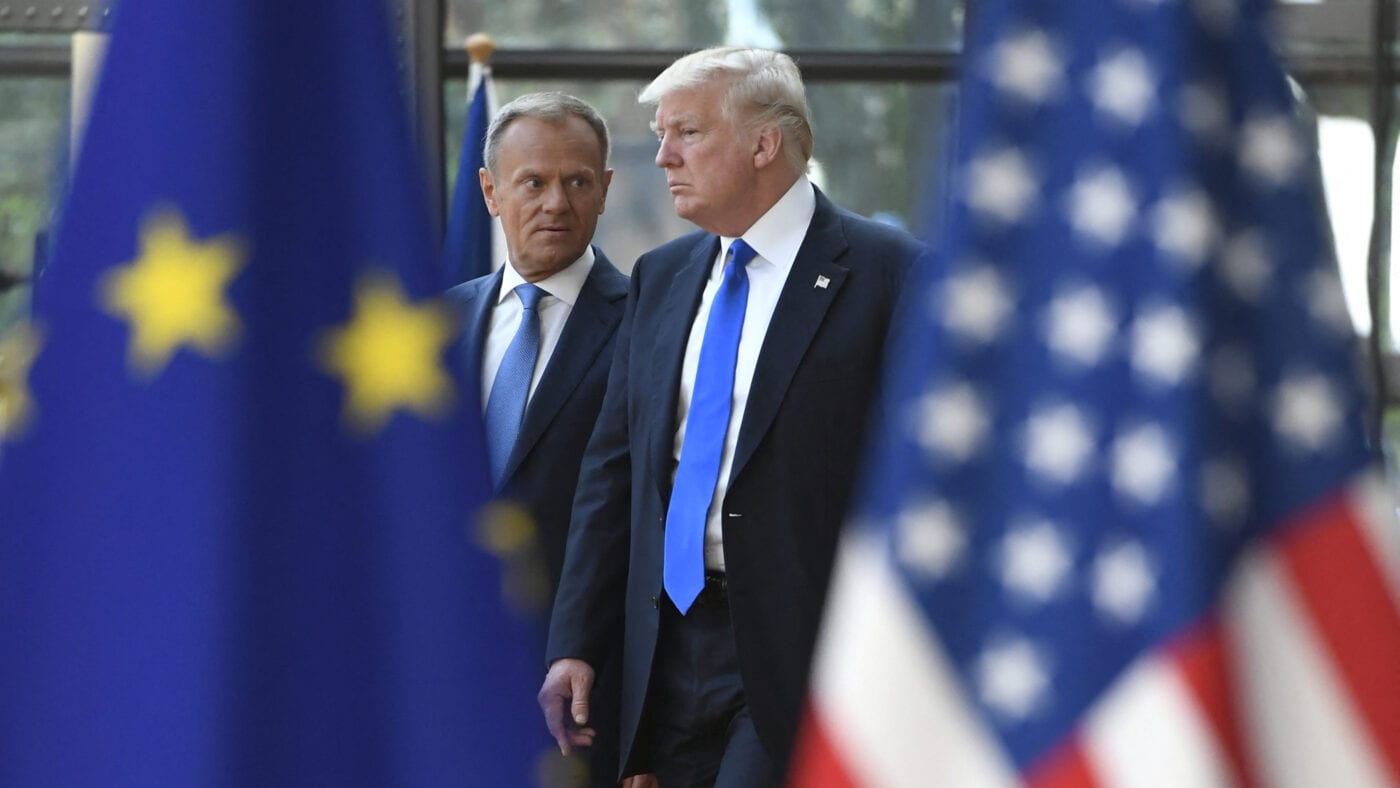The decision by US Court of International Trade to block Donald Trump’s tariffs, declared by the President under International Emergency Economic Powers Act (IEEPA), comes as a relief after the weeks of uncertainty and policy reversals that followed the ‘Liberation Day’ on April 2.
It also shows that, while businesses had good reasons to be rattled by the prospect of tariffs, European policymakers would have done best by not expending too much energy humouring Trump and offering him off-ramps.
Just last week, Trump’s announced a 50% tariff on imports from the EU, which he then postponed to July 9 following his phone calls with Giorgia Meloni and Ursula von der Leyen. If enacted, the policy would have amounted to a de facto embargo on some $600 billion worth of goods, many of them inputs into US manufacturing.
Throughout this administration, the bloc has gone out of its way to engage constructively with the Trump team. The Trade Commissioner, Maroš Šefčovič has made countless trips to Washington and the EU was offering the United States meaningful mutual concessions to tariff rates as well as cooperation on strategic matters such as 5G/6G, in line with efforts made under the auspices of the Trade and Technology Council during the previous administration.
In its obsession with bilateral trade deficits in goods, the Trump administration appeared to be treating European value-added taxes as tariffs under the logic that those who sell US goods in Europe are liable to pay VAT. Yet VAT is trade neutral – the exact same tax is levied on products coming from within the EU or from anywhere else in the world. Asking Europeans to overhaul their tax systems to satisfy some imaginary grievance is just not reasonable – just as it is not reasonable to use the threat of tariffs to force Europeans to change their food standards.
The tone and the timing of the announcement on Friday was curious too. Just as it became transparent that the US President was being taken for a ride by Vladimir Putin, Trump decided to unleash his angers against the EU, accusing it of being ‘formed for the primary purpose of taking advantage of the United States’.
Even in the absence of this week’s court order, it was unlikely that the announced policy would stick, even if it were ever implemented. Initial estimates by the Kiel Institute for World Economy suggest that over the course of a year a 50% tariff regime on imports from the EU would reduce US real output by 1.5% and drive US prices up by almost 7%.
As the former European Commission president Jean-Claude Juncker put it during one of Trump’s earlier trade wars with the EU, Europe ‘can also do stupid’. The United States is running a service export surplus with the EU, with total exports worth $275bn. The EU does have tools, which it has not fully deployed yet, to hold US tech giants accountable.
Escalating is not attractive – and, as it turns out, it is not even necessary. However, the EU should have also resisted the urge to help Trump too eagerly to climb down from his threats, if he is to be dissuaded from using his predatory trade policy tactics for the rest of his term. Prostrating before the US president, as the United Kingdom has done, accomplishes little. The US-UK ‘deal’ is actively harmful compared to the status quo before April 2. With no legal weight, it may also be reversed in an instant.
Those who saw their agreements with Trump broken in the past – not least Canada and Mexico, parties to Trump’s own United States-Mexico-Canada Agreement – would attest that even having actual free trade agreements in place is no guarantee of a stable trading regime with the United States.
True, given his country’s exposure to the United States, it was understandable that the Irish prime minister thought that ‘there is no time to lose’ and that prompt European concessions to the United States were justified. But that is also a very narrow and short-sighted perspective. In case Trump eventually gets his way with tariffs and the IEEPA at the Supreme Court, Europeans and the wider world must be ready not to accommodate him. If they do, there will be no end to his threats and demands.
The best way for the EU to respond to future US bullying is by doubling down on the effort to work around the rogue superpower. Having a framework for economic relations with the UK is good. Now is the time to approve the EU-Mercosur free trade agreement and conclude FTAs with India, Australia, and Indonesia, at a minimum. But more creative thinking is needed too – would it be a stretch to discuss how Canada could be brought into the EU’s single market, perhaps following the model of sectoral agreements used by Switzerland?
Europeans should continue to harbour the hope that the current version of America is not the only one that is possible – and they should be ready to engage when political circumstances in Washington change. Yet, for the foreseeable future, trying to appease and accommodate an administration that is on a quest to destroy the European project is a fool’s errand.
Click here to subscribe to our daily briefing – the best pieces from CapX and across the web.
CapX depends on the generosity of its readers. If you value what we do, please consider making a donation.


